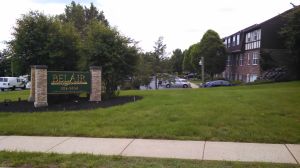5/29/2014
While the story below, with good reason, depicts this technology in a positive light. This same technology could easily be used in times of civil unrest and turmoil against law-biding citizens eluding the situation. Read how easily it works!
Cellphone led police to Lancaster hotel room where kidnapper was with 12-year-old
Nelson Hercules already was in a hotel room with a 12-year-old girl he hadabducted Friday afternoon in Manheim Township.
Fortunately, the 30-year-old Virginia Beach man had one crucial item that led police to the hotel room door within about 30 minutes.
His cellphone.
After the abduction near the Belair Town Homes off Delp Road, Manheim Township Police quickly discovered that the young girl had been texting Hercules, using a friend's cellphone, according to the criminal complaint filed in his arrest.
The two had met online and communicated in an online game chat room, the complaint said, as well as texted each other.
Police learned that the number the girl had been texting belonged to a prepaid phone registered to Hercules.
Police then contacted Lancaster County Radio and requested that the cellphone's carrier, Sprint, conduct a "ping search" for the number.
The search shows what cellphone towers are connecting with the user's phone, to narrow down the user's location.
The search showed that number was pinging within 900 meters of Baker Field, Franklin & Marshall College athletic fields that are along Harrisburg Pike.
That led police to a parking lot of a nearby hotel, where they found a black Pontiac G5, which was registered to Hercules, according to the complaint.
They checked with hotel employees and found Hercules had registered as a guest.
They knocked on his door and found him, and the 12-year-old.
Rick Harrison, operations manager for Lancaster County 911, said emergency officials ask to ping cellphones only when there is an immediate danger to someone, such as in the case of an abduction, a person who has gotten lost in dangerous weather or perhaps someone who is contemplating suicide.
Local officials use the tracking method perhaps twice a month, he said.
They have to contact the user's cellphone provider, which either tracks a GPS locator on the phone or uses a triangulation of cellphone towers, to establish a location for the user.
"It can be a very effective tool when we have to deploy it," Harrison said, and the tracking can be used even if someone has turned off a cellphone. "But there has to be that endangerment factor."

No comments:
Post a Comment